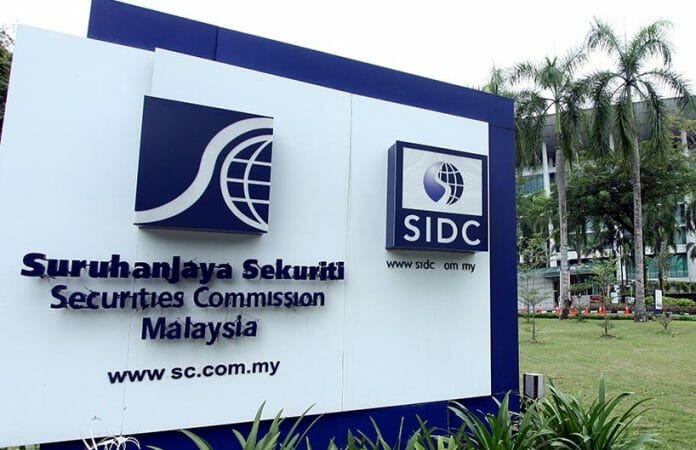The Securities Commission (SC) Annual Report for 2023, released today, revealed significant shifts in foreign investment trends in Malaysia. According to the report, foreign investors from the Asia-Pacific region surged by 4.34 percentage points to 42.36 percent in 2023 from 38.02 percent in 2018. Similarly, the Caribbean region saw an increase of 1.40 percentage points to 3.03 percent in 2023 from 1.6 percent in 2018.
Conversely, foreign investment from North America dropped by 4.23 percentage points to 22.36 percent in 2023 from 26.59 percent in 2018, and the Middle East experienced a decrease of 1.31 percentage points to 1.36 percent in 2023 from 2.67 percent in 2018.
The report highlighted that Caribbean investors increased to 4.20 percent in 2021 from 2.01 percent in 2020, primarily attributed to investments in the healthcare, industrial, and energy sectors.
“Caribbean investors increased to 4.20 percent in 2021 from 2.01 percent in 2020, mainly due to holdings in the healthcare, industrial, and energy sectors, which increased in value by RM161.28 million, RM4.59 billion, and RM16.80 million, respectively,” it said.
Meanwhile, SC said investors in the financial sector experienced a sudden decline in 2020, recording a decrease of 2.78 percentage points to 19.02 percent in 2020 from 21.80 percent in 2019 due to economic sluggishness when global activities were halted temporarily during the COVID-19 pandemic.
“Investors in information technology counters increased by 2.57 percentage points over five years, from 1.68 percent (2018) to 4.24 percent (2023), mainly due to strong growth in semiconductor companies and automation solutions,” it said.
SC said investors in the age group under 45 increased from 2020 to 2021 from about 40.14 percent to 40.74 percent due to higher unemployment rates while younger individuals’ interest may have shifted to investing as a way to generate additional income.
“The widespread transition to digital structures during the COVID-19 pandemic has facilitated investors in the under-45 age group’s access to the capital market,” it said.
According to SC, there was a significant surge in retail investor engagement in 2020, mostly due to investors’ personal cash reserves.
However, this trend has returned to normal since the end of the peak of the COVID-19 outbreak and decreased to 36.07 percent in 2023, a trend observed globally.
In the Malaysian equity market, foreign investors have consistently formed about one-fifth of the market since 2018, and that percentage dropped below 20 percent for the first time in April 2023.
However, SC said the five-year average composition of foreign investors ending in 2023 was still at 21.41 percent, exceeding the 20 percent threshold.
According to SC, from 2018 to 2020, sales activities by foreign institutional investors were recorded at RM11.54 billion in 2018, RM11 billion in 2019, and RM24.38 billion in 2020, while these sales were supported by domestic institutional and retail investors.
It said domestic institutional investors recorded RM7.71 billion in 2018, RM8.54 billion in 2019, RM10.26 billion in 2020, while domestic retail investors recorded RM3.99 billion in 2018, RM2.61 billion in 2019, and RM14.34 billion in 2020.
SC said in terms of trade, from 2018 to 2023, foreign institutional investors accounted for the bulk of foreign trades while foreign retail investor trades were relatively subdued.
It said the composition of local strategic investors increased by 0.76 percentage points to 84.75 percent in 2023 from 83.99 percent in 2018 mainly due to their holdings in the information technology sector, which improved with holdings increasing by RM26.76 billion over five years.
“Meanwhile, active non-strategic local investors decreased by 0.75 percentage points and passive non-strategic local investors decreased by 0.01 percentage points from 2018 to 2023,” it said.
It said the composition of foreign strategic investors increased by 7.53 percentage points to 52.02 percent in 2023 from 44.49 percent in 2018. “Foreign passive non-strategic investors also increased to 19.36 percent from 17.65 percent.
This increase is due to a decrease of RM36.58 billion in the value of holdings of foreign non-strategic active investors,” it said.
According to SC, foreign non-strategic active investors decreased by 9.24 percentage points from 2018 to 2023 due to a decrease of RM13.58 billion in financial sector holdings.
“In summary, the composition of local investors is more stable compared to that of foreign investors. For example, from 2018 to 2023, local investors in terms of value decreased by 2.42 percentage points, while foreign investors decreased by 16.50 percentage points,” it said.







